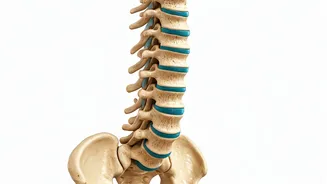Study Highlights
The UK-based study has brought to light the positive impact of regular exercise on individuals suffering from back and joint pain. The research indicates
that a mere 120 minutes of physical activity per week can contribute to a noticeable reduction in discomfort. This finding offers a straightforward and accessible approach for those seeking natural pain relief. The key takeaway is that consistency in exercise, even with a modest time commitment, can yield considerable benefits for musculoskeletal health. The research further suggests that the type of exercise should encompass full-body routines to ensure that various muscle groups are engaged, thereby supporting overall skeletal alignment and function. This strategy promotes a balanced approach to physical activity, potentially leading to long-term improvements in joint mobility and back health.
Easy Full-Body Routines
Implementing full-body exercises into your routine doesn't necessarily mean spending countless hours at the gym. A collection of accessible and straightforward routines can be easily incorporated into daily life. Begin with activities like brisk walking or cycling, both of which are gentle on the joints while still engaging major muscle groups. Include core exercises such as planks and bird-dogs to stabilize the spine and improve posture. Incorporate strength training exercises such as squats, lunges, and push-ups to build muscle around the joints, thereby offering support. Consider also flexibility exercises like yoga or stretching, as these help enhance range of motion and reduce stiffness. Remember to begin slowly, particularly if you're new to exercise, and gradually increase the intensity and duration as your body adapts. It's always a good idea to consult a healthcare professional before starting any new exercise regimen, ensuring it aligns with your physical condition and goals.
Benefits Beyond Pain
Regular exercise, particularly the type recommended by the UK study, extends benefits that go far beyond just mitigating back and joint pain. These routines boost overall physical fitness, which can improve cardiovascular health, enhancing heart function and blood circulation. Consistent exercise can also lead to weight management, reducing the stress placed on joints. Improved mood and mental well-being are also associated with regular physical activity, as exercise releases endorphins, natural mood lifters that combat stress and anxiety. Regular exercise habits can enhance energy levels and improve sleep quality. The impact also extends to increased bone density, reducing the risk of osteoporosis. Exercise fosters a general sense of well-being, improving both physical and mental resilience and paving the way for a healthier and more active lifestyle.














